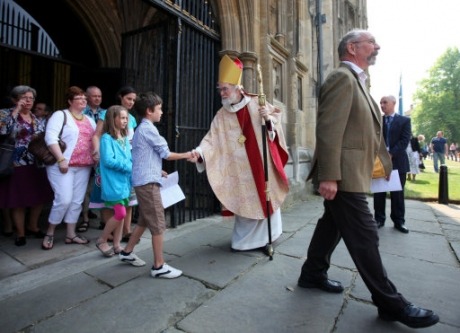The Religious 'Nones' and the Curious Case of Millennials

OnFaith, publication of FaithStreet, has just released a quick report featuring the latest data on religious “nones” – people who select “none” when asked about their religious affiliations. The surprise? They aren’t who you think they are. While many of the “nones” (36 percent) are atheist/agnostic, a whopping 62 percent are either “not religious” or “unattached believers.”
Basically, most of the “nones,” rather than being non-believers, are religious sheep without a flock. Some more highlights:
Later, Pew chimes in with similar figures:
*Pew Research Center’s cumulative findings, based on 16,000 interviews in numerous 2013 surveys, found a slightly different split:*
- 22 percent Catholic
- *20 percent nones (a mix of people who say they believe “nothing in particular,” unaffiliated believers and unbelievers)*- *18 percent white evangelicals*
It’s admittedly a little spurious to lump atheists in with “unaffiliated” believers and general agnostics, but it proves a point: There are fewer mainline believers in America now than ever before. Part of that has to do with reluctance among the millennial generation to become affiliated:
The millennial issue is an interesting one, and the report doesn’t offer any explanations. One possibility is that millennials, having come of age in a time where specialized information is at their fingertips, are more interested in an “a la carte” approach to religion rather than a single affiliation’s one-size-fits-all appearance. It’s also been shown that millennials have “rebelled” against older generations very quietly, if they rebel at all. Eschewing your parents’ traditional affiliation (while maintaining a unique sense of faith) is a conveniently passive way to assert yourself.
It’s as important as ever for religious communities to stay connected with one another and encourage dialogue within them. There’s no reason for someone to fall through the cracks because they simply had questions that no one was willing to answer. Online tools, like FaithStreet’s church directory and giving platform, make it easier than ever for leaders and community members to form a network, but the work ultimately starts at home – in the pulpit, in the pews and in the faith community.

